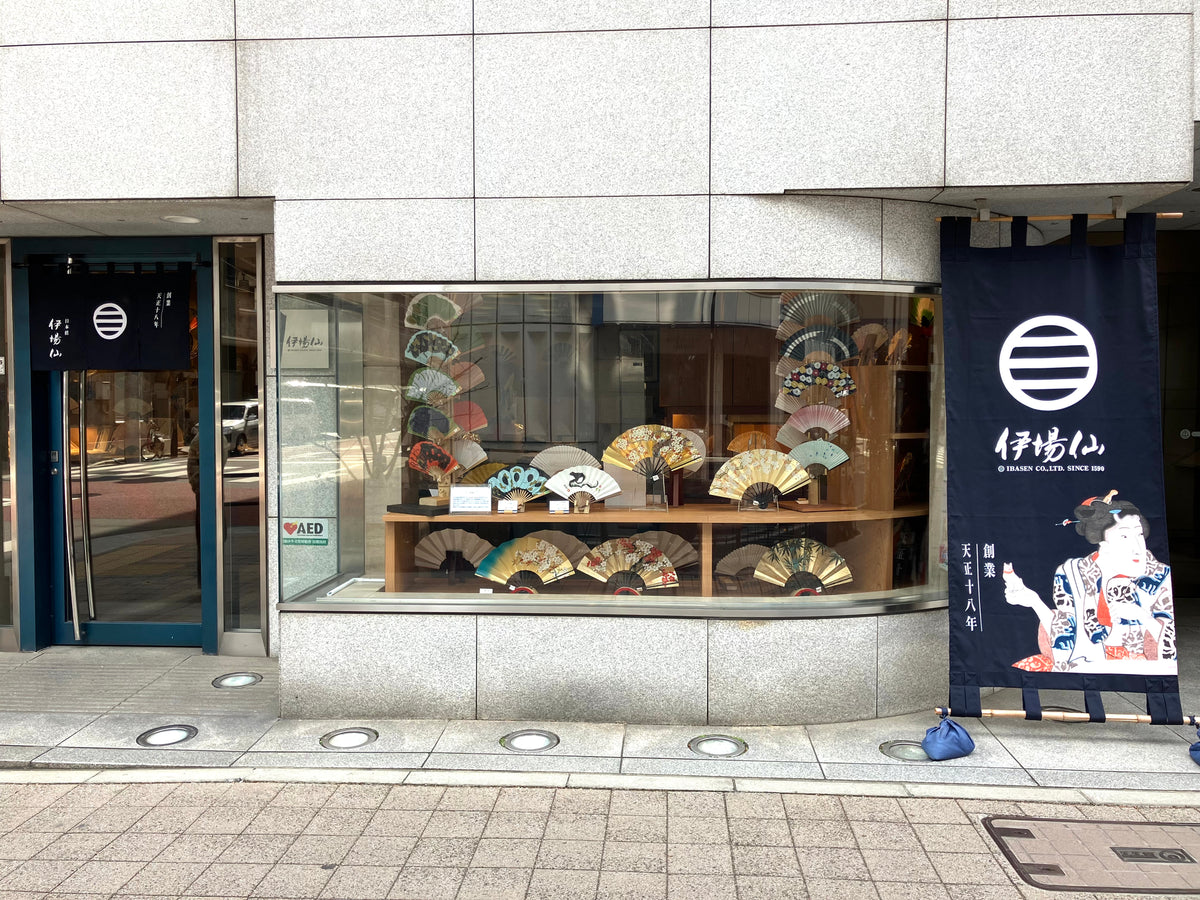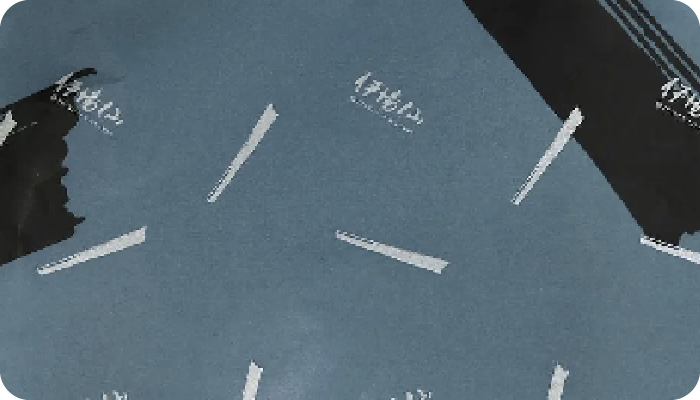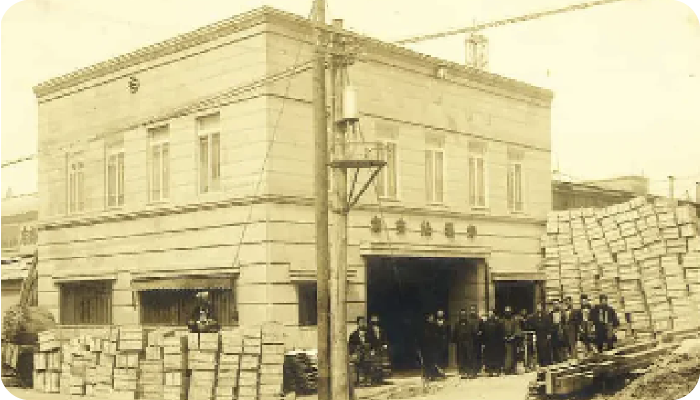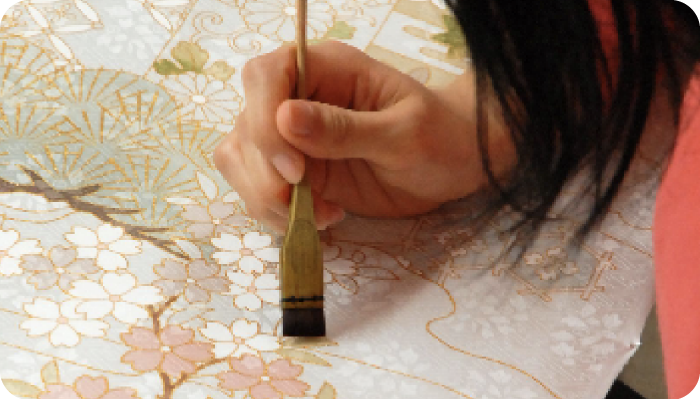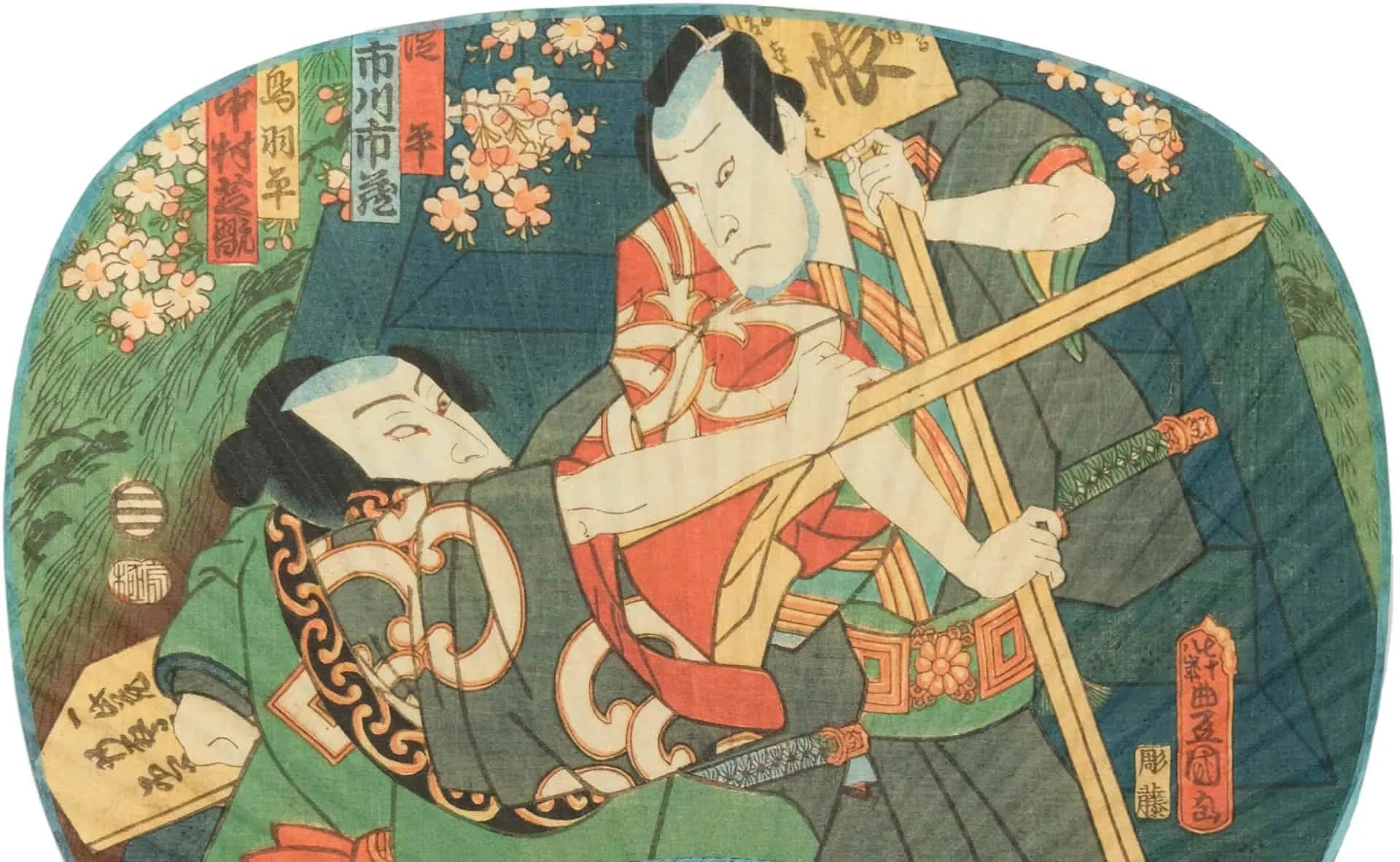

Kabuki actor patterns and Kabuki crests
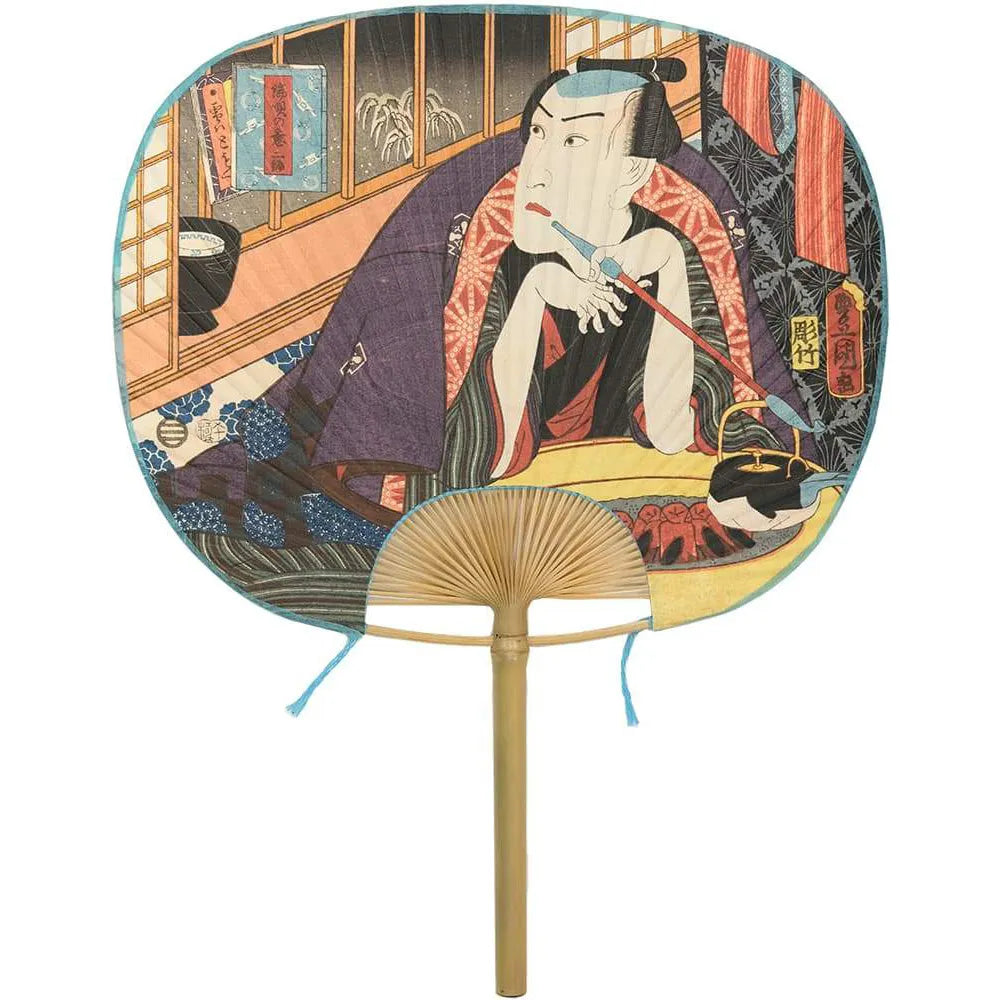
Edoround fanUkiyoe Toyokuni Carved Bamboo
Originally thisround fandepicted a scandal involving a Kabuki actor.round fanwas created from a painting depicting a scandal involving a Kabuki actor.
Ibasenhas a strong connection with Kabuki, and in the early nineteenth century, as a promiscuity of actors, as we now call them, Kabuki actors were depicted inround fanThe painting was sold as what we now call a promaid for actors.
Toyokuni sculpture belowwisteriatogether with the Kabuki, which was spared the Great Kanto Earthquake and the Second World War.round fanThese two patterns are the only paintings that have survived the Great Kanto Earthquake and the Second World War.
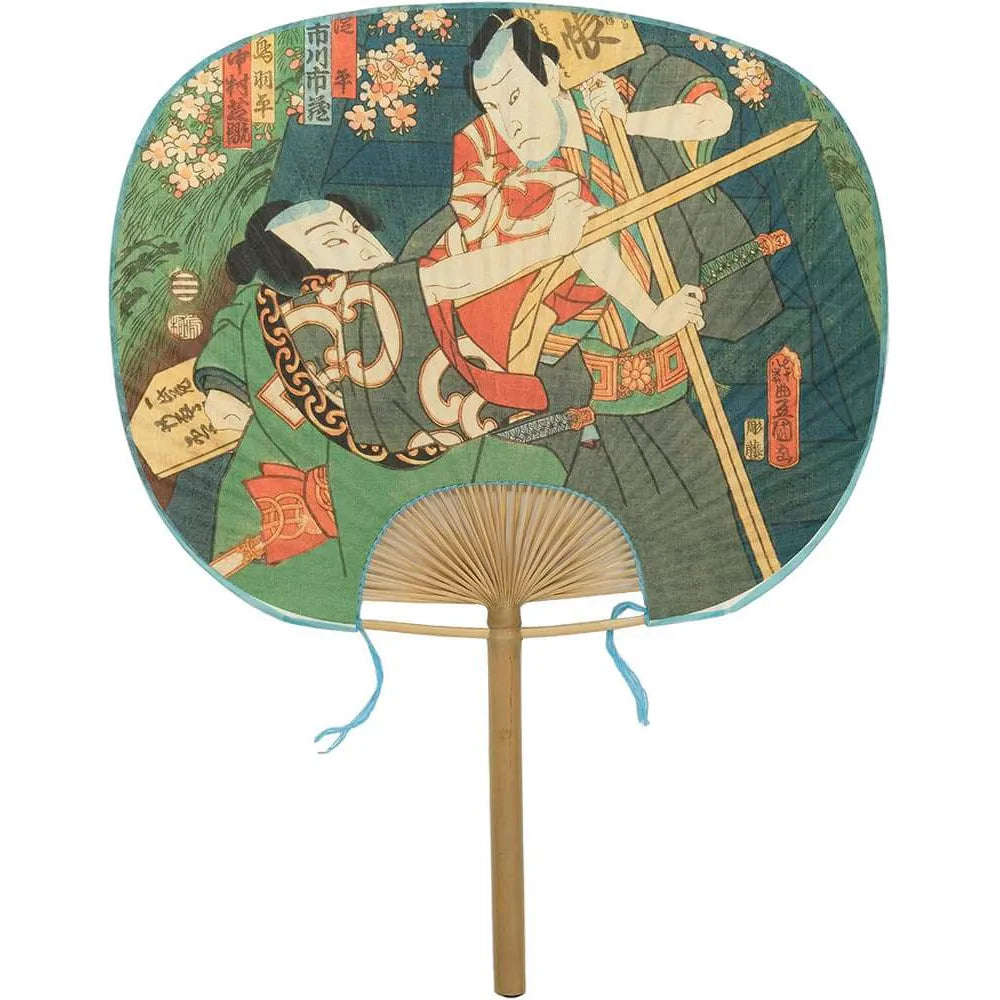
Edoround fanUkiyoe Toyokuni carvingwisteria」
This is a Kabuki play "Kanjincho".
In the Edo period, Ukiyoe played the role of advertising media for Kabuki and were sold for each performance.
It seems that people in Edo knew which actor was which by the patterns and family crests on the yukata, obi, and hand towel.
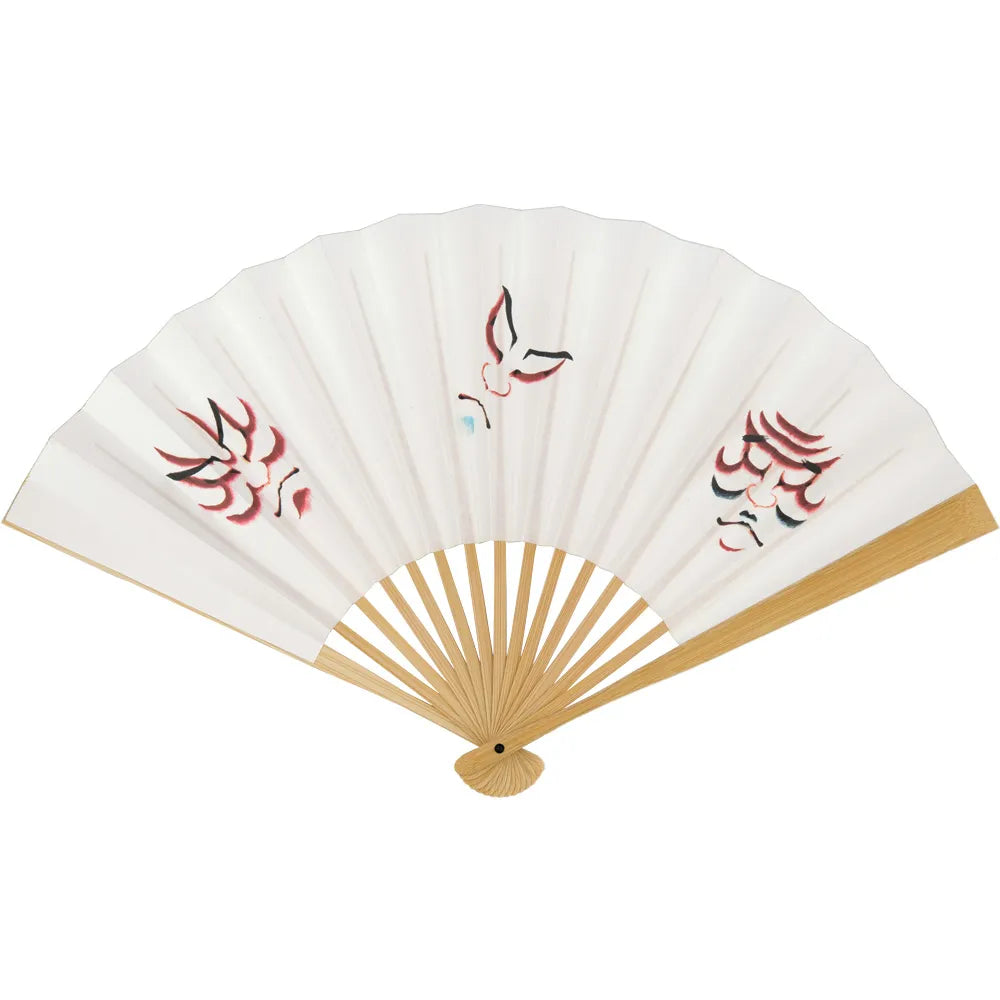
Edo fan Kumatori."
Kumatori is a method of creating perspective by using colors or shades of colors.
It is said that Danjuro Ichikawa I started kumadori in Kabuki. It is said that he got the idea for kumadori from joruri puppets.
Kabuki began in the Edo period (1603-1867), when playhouses were dimly lit without electric lighting, making it difficult to see the actors' expressions.
The colors of the kumadori also have meanings: red for justice, blue for evil, brown for demons, and there are about a hundred different shapes and forms.

Kabuki Shading List
IbasenKabuki shadingfolding fanYou can see which of the three Sumidori are the three Sumidori of Kabuki from the list on the left.
The leftmost one is sujiguma, which is most often used in Kabuki, and is a typical kumadori of aragoto.
『arrowheadSoga Goro in
The middle one is Mukimiguma, a little delicate and sexy.
Soga Goro in "Sukeroku Yui Edo SakuraSukeroku
Sukeroku is used in the role of Saruguma, a dashing warrior with a funny and comical personality.
Kobayashi in "Kotobuki Soga no Mukai" (The Face of Kotobuki Soga)Asahina
Various Yakusha Patterns
Yakusha patterns were invented by kabuki actors in the Edo period to promote their respective troupes. The yakusha crest is a unique and chic form that combines and develops several types of patterns. These yakusha patterns are the ultimate in sophistication, connecting kabuki actors with the audience.
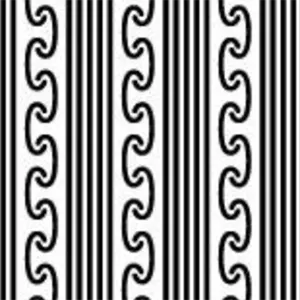
Shikanjima
This pattern was popularized by the kabuki actor Nakamura Shikan I (Nakamura Utaemon III).
Four stripes with ringspatternThe pattern is a combination of "four rings" and "shikan" (a play on the word "shikan").
It is still used today for yukata (light cotton kimono) and hand towels.
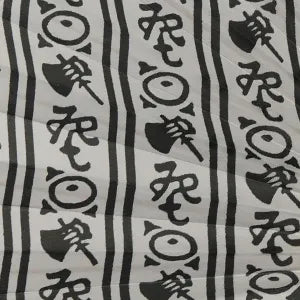
YOKIKOTOKIKU
It was used for Onoe Kikugoro's Kabuki costumes.
The picture of an axe reads "yoki," below which is "koto," and the round shape is the flower of "chrysanthemum.
It means "to hear good things."
It is said that this piece was adopted to compete with Ichikawa Danjuro's "Kamawanu-bun," which was popular at the time.
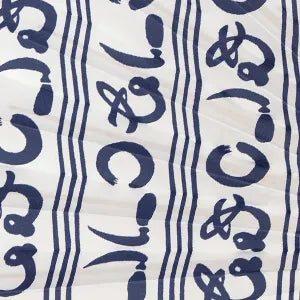
Kamawanu
It is known as the pattern used by Kabuki actor Ichikawa Danjuro.
This pattern, popular in the Edo period, consists of a picture of a sickle, a picture of a wheel, and the character "Nu" superimposed on top of each other, in reference to "Kamawanu," the Japanese word for "sickle.
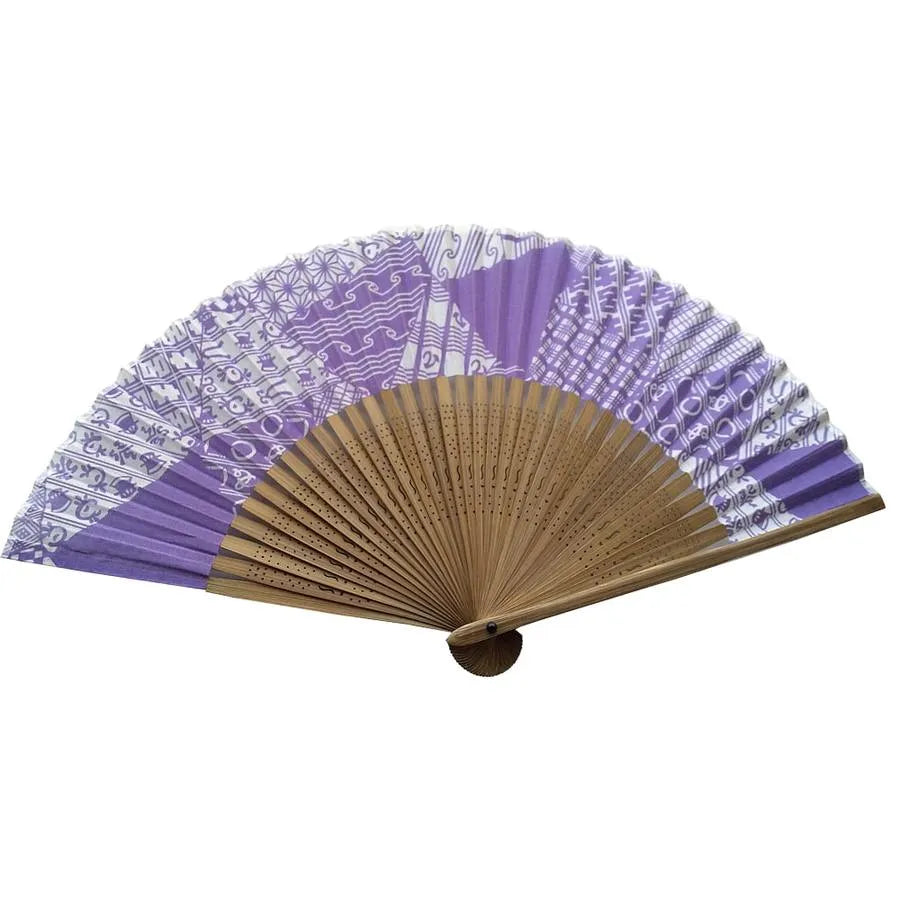
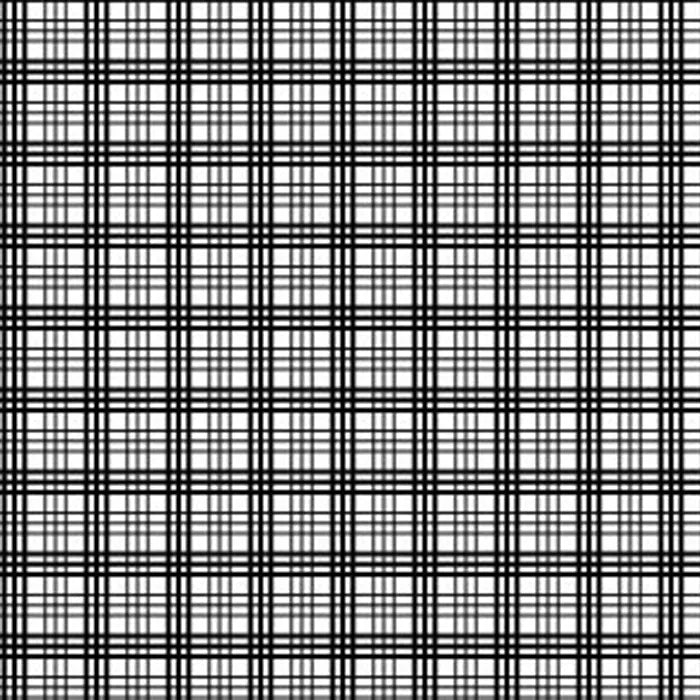
Mitsugoro Stripe
A pattern named after the Kabuki actor Mitsugoro Bando III.
It is a lattice pattern of three, five, and six stripes crossing each other vertically and horizontally.
Sangoroku" ▶︎ "Mitsugorou" stripe
Also called Mitsugorou lattice.
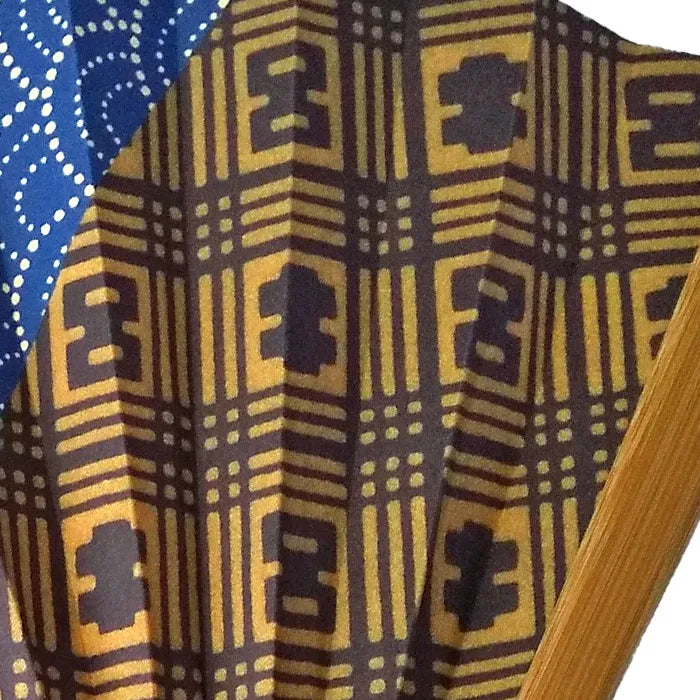
Kikugoro lattice
Kabuki actor Onoe Kikugoro III used this style of latticework, and it became popular.
Its four and five stripes are combined into a lattice, and the character for "ki" and the character for "ro" are placed alternately in the lattice to form "kikugoro" and Kikugoro's name.
Kikugoro lattice. Kikugoro dyeing. Also known as Kikugoro dyeing.
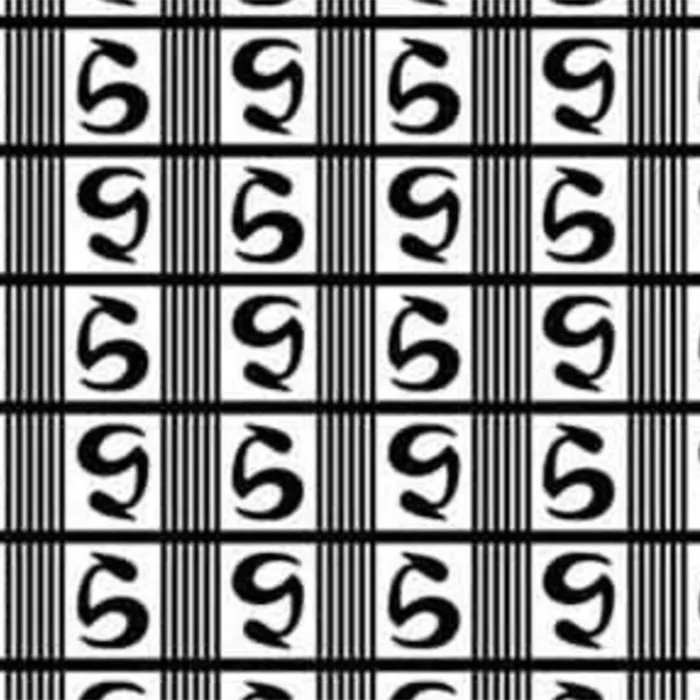
Ichimura lattice
A favorite of Kabuki actor Uzaemon Ichimura XII.
The character "ra" is used between one horizontal and six vertical lattices: "ichiroku-ra" ▶ ▶ "ichi-mura" ▶ "ichi-mura" ▶ "ichi-mura" ▶ "ichi-mura".
There is also a "torn Ichimura lattice" in which the lattice stripes are partially torn.
Kabuki patternfolding fan
Kabuki crests, like patterns, have been used for stage costumes and props tenugui (hand towels).
Ichikawa Danjuro's Sanmasu crest is well-known.
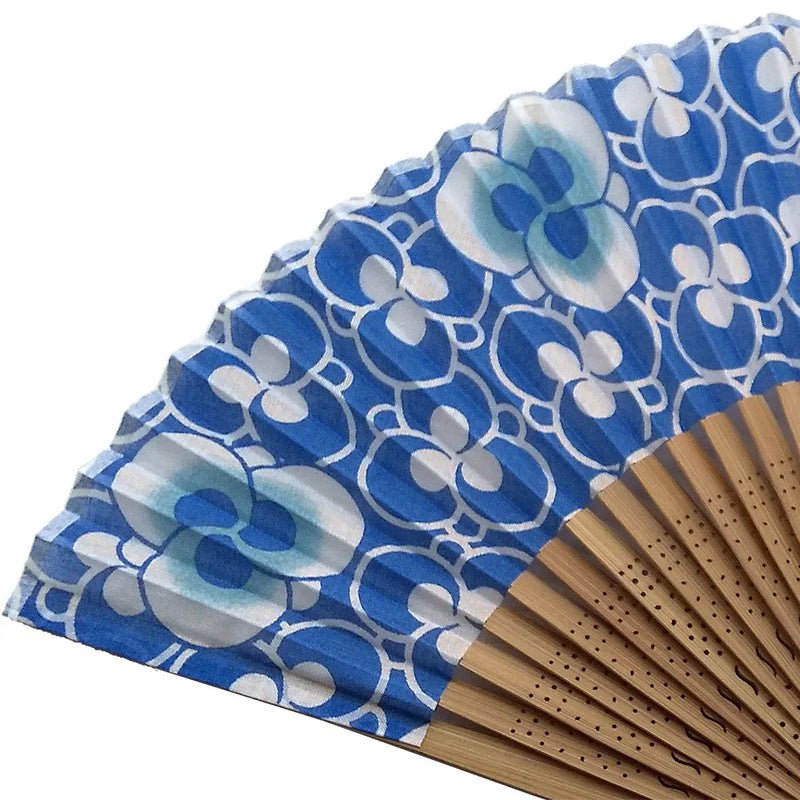
Three monkey crest
Mitsuzaru-mon" is a stylish pattern of the crest of three monkeys, the family crest of Omodakaya, a famous nashien (pear orchard) family, scattered in the sun and in the shade throughout the pattern.
This family crest is also used by the Kabuki actor Ichikawa Ennosuke on his stage props.
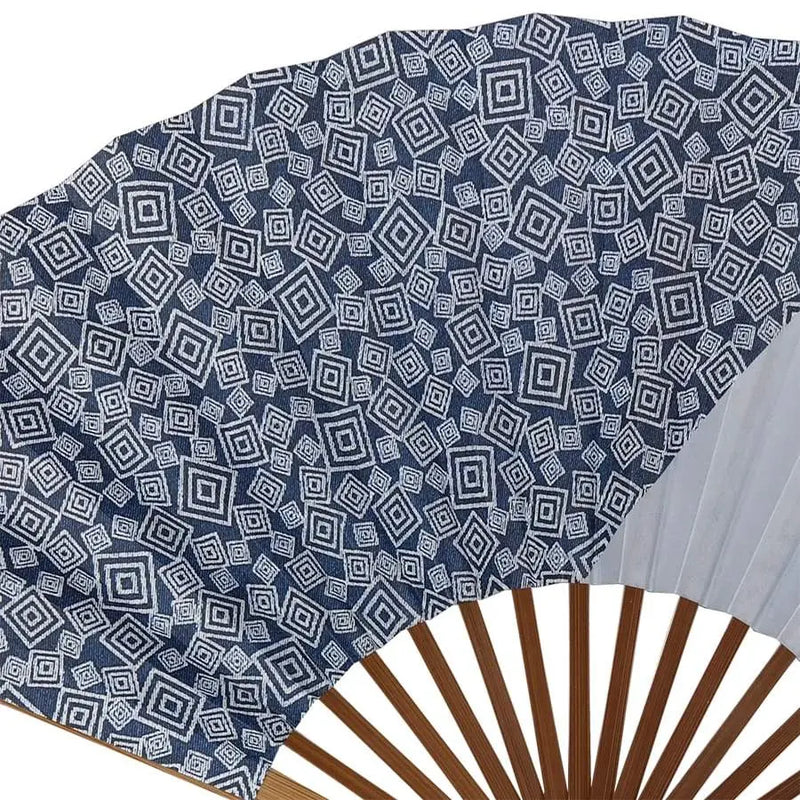
Mimasumon
This crest was invented by Kabuki actor Ichikawa Danjuro I from the "lightning bolt pattern" and later became the crest of the Ichikawa clan.
The "San-masu" pattern is a pattern of large, medium, and small Masu (bowls), arranged in a box and viewed from the top. There are many variations, such as those with "San Masu" scattered or with "San Masu" arranged between stripes.
The word "Masu" is thought to be good luck, as it is related to the word "increase. It is also called "three nested Masu".
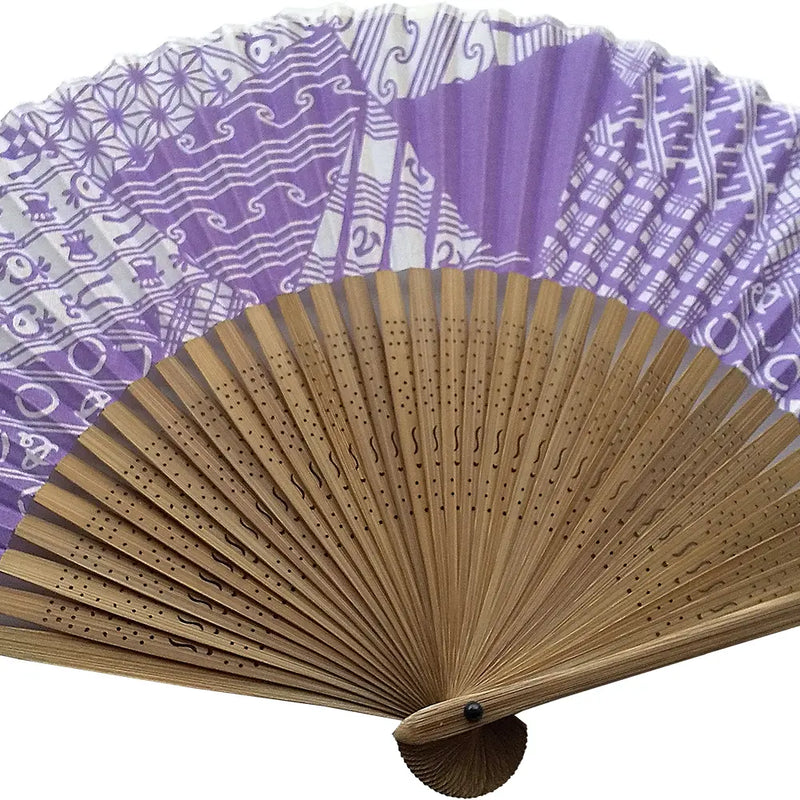
Tenugui Hand Towelfolding fanYakusha design, purple
Tenugui Pattern Cottonfolding fanThe pattern is
A combination of chic, light purple hanji-mono
Shikanjima
Axe and chrysanthemum
Kamawanu
Mitsugoro Stripe
Kikugoro lattice
・Asano-ha deisign
Checkered pattern, etc.
San Masu Mon patternfolding fanand fan bag
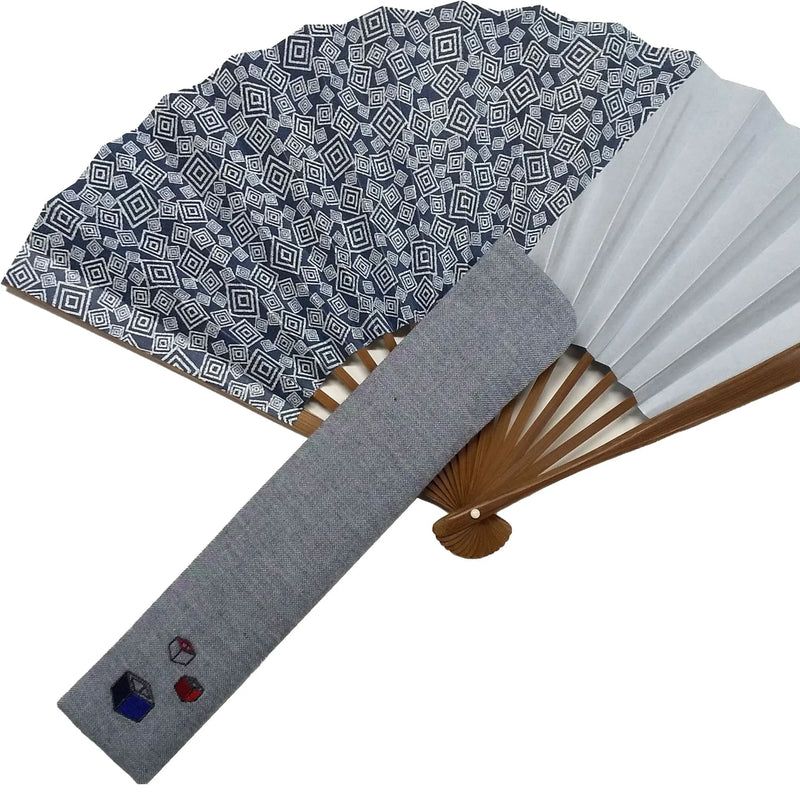
Edo fanSet No.25 Double-sided Pattern, San Masu pattern
The pattern of "San Masu" is on both sides.folding fanThe bag is also embroidered and becomes a set product.
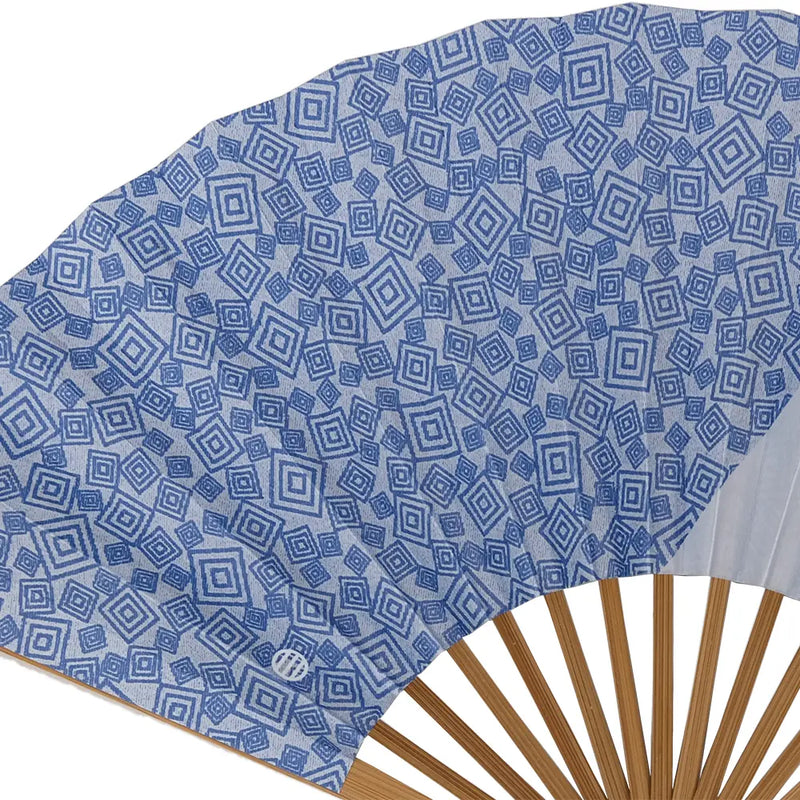
San Masumonfolding fanBack side of
The back side of the "SAMASUMASUMO" is a bright blue.
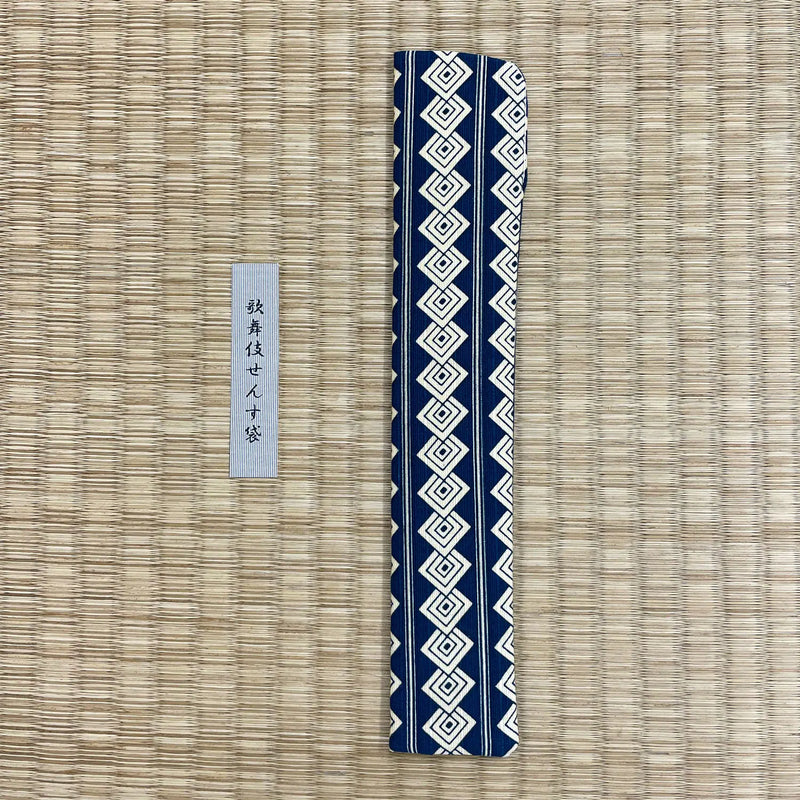
IbasenKabukifolding fanBag, 3 Masu
three square-shaped crests (on the left side of the head)folding fanThis design is also available if you want to match with
This design is also available for those who are interested in the design of the "Masumon".
Various patterns
The Yoshiwara Tsunagi, the flag marks used by firefighters during the Edo period (1603-1868), and other patterns symbolizing the Edo period (1603-1868) are available.
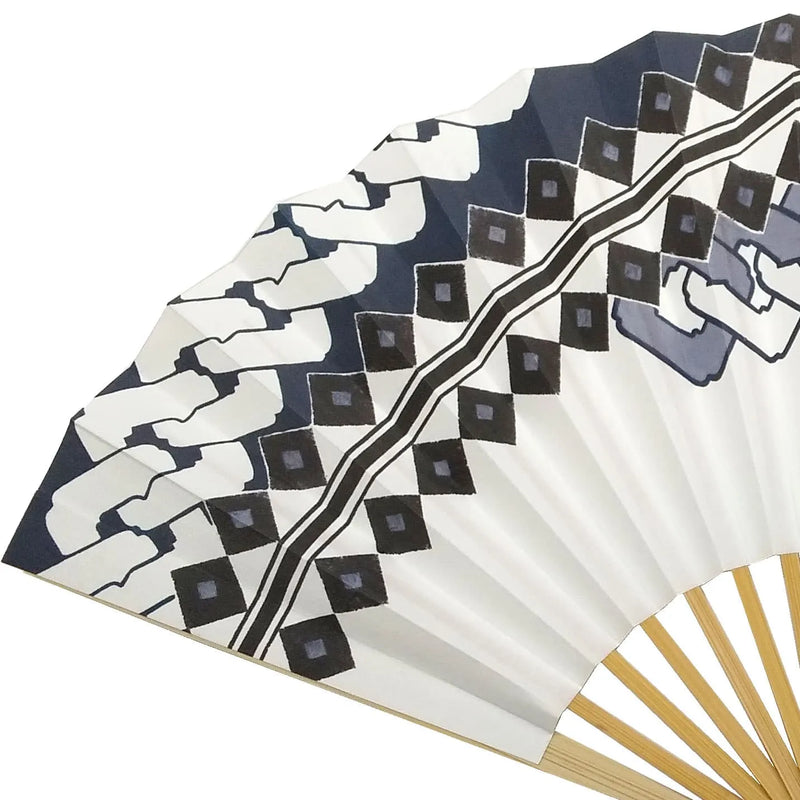
Yoshiwara Tsunagi
Also known as "Yoshiwara Tsunagi" or "Kuru Tsunagi.
It comes from "Yoshiwara," the largest brothel in the Edo period (1603-1868), and is still used today as a representative pattern for hand towels and yukata (summer kimonos).
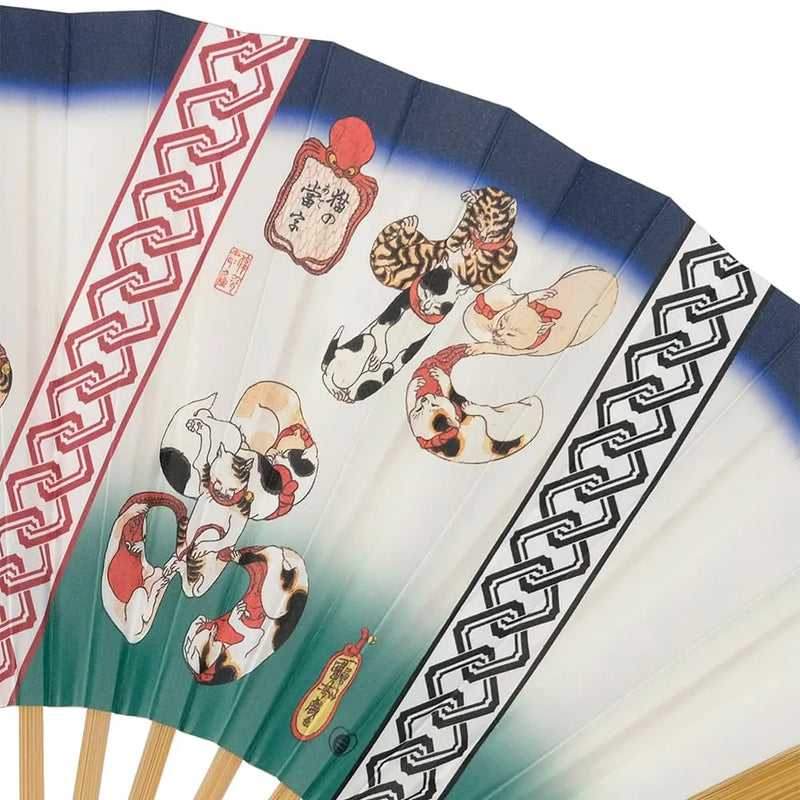
Yoshiwara Tsunagi Red and navy blue
The regular pattern of red and black vertically on both sides is called "Yoshiwaratsugi", also known as "Kurutsugi".
This pattern is also used in the ukiyoe cat design by Kuniyoshi. Kuniyoshi's uniqueness is expressed casually.
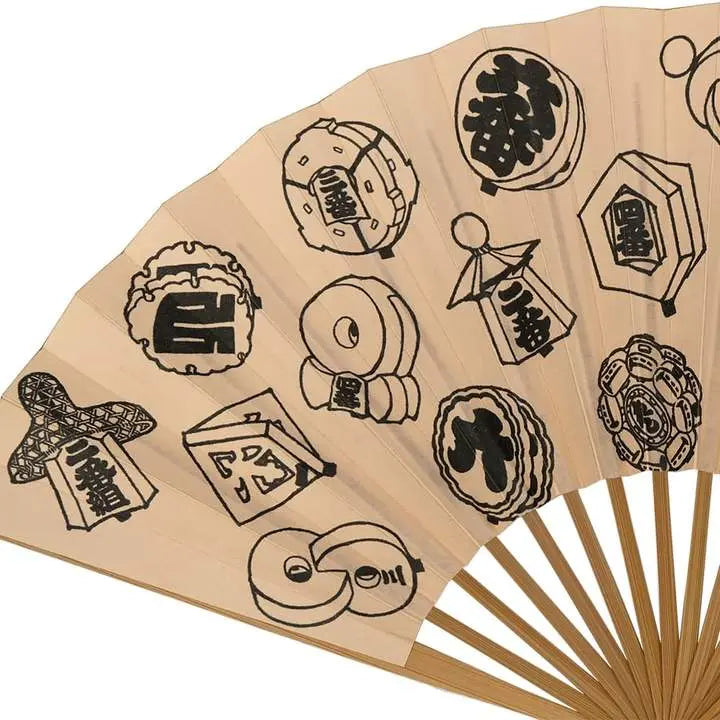
Clothing
A kind of banner used by firefighting groups in the Edo period.
It has a head at the top that represents the clan, and a long, thin decoration hanging from the top called a "baren," with a tassel made of paper or leather.
The banner is held in the hand, and when it is raised or rotated, it dances.
The fun is enhanced by comparing the unique "baren" of each group to see which group it belongs to.
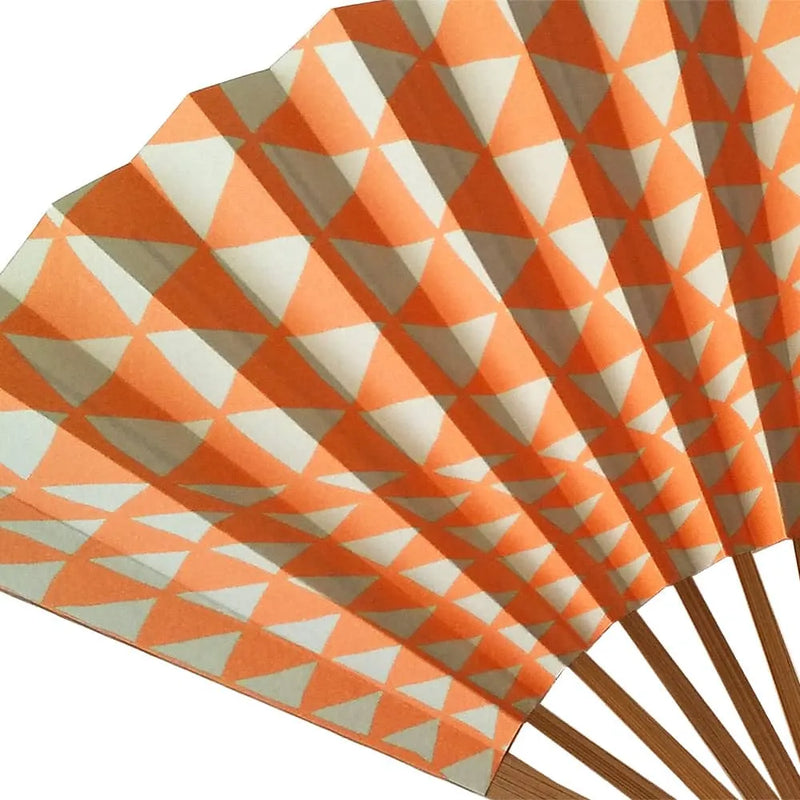
Kitcho Pattern
Designs depicting objects considered auspicious are called kisho-monyo (auspicious design).
Please see here for a variety of kisho-monyo patterns.
Related products
Ukiyoe Edoround fanPictures (Nishiki-e and Yamato-type) are printed byIbasenis a multicolor printround fanThe prints were produced as uchiwa-e (Japanese fan paintings). This exhibition is based on the only existing woodblock prints,IbasenThe prints were printed and produced by
old name of Tokyoround fanUkiyoe Toyokuni Carved bamboo
- Regular
- ¥5,500
- Sale
- ¥5,500
- Regular
-
- Unit Price
- per
old name of Tokyoround fanUkiyoe Toyokuni carvingwisteria
- Regular
- ¥5,500
- Sale
- ¥5,500
- Regular
-
- Unit Price
- per
Ibaseneditionround fanPainting No.18 Toyokuni Engravingwisteria
- Regular
- ¥3,300
- Sale
- ¥3,300
- Regular
-
- Unit Price
- per
Utagawa Toyokuni Carved Bamboo Clear File
- Regular
- ¥550
- Sale
- ¥550
- Regular
-
- Unit Price
- per
[Personalisation only]Edo fan No.18 Shading
- Regular
- ¥11,000
- Sale
- ¥11,000
- Regular
-
- Unit Price
- per
[Personalisation only]Edo fan No.20 Axe Kotokiku
- Regular
- ¥11,000
- Sale
- ¥11,000
- Regular
-
- Unit Price
- per
[Personalisation only]Edo fan No.21 Kamawanu navy blue
- Regular
- ¥11,000
- Sale
- ¥11,000
- Regular
-
- Unit Price
- per
[Personalisation only]Edo fan No.25 Three-masu pattern, double-sided
- Regular
- ¥13,750
- Sale
- ¥13,750
- Regular
-
- Unit Price
- per
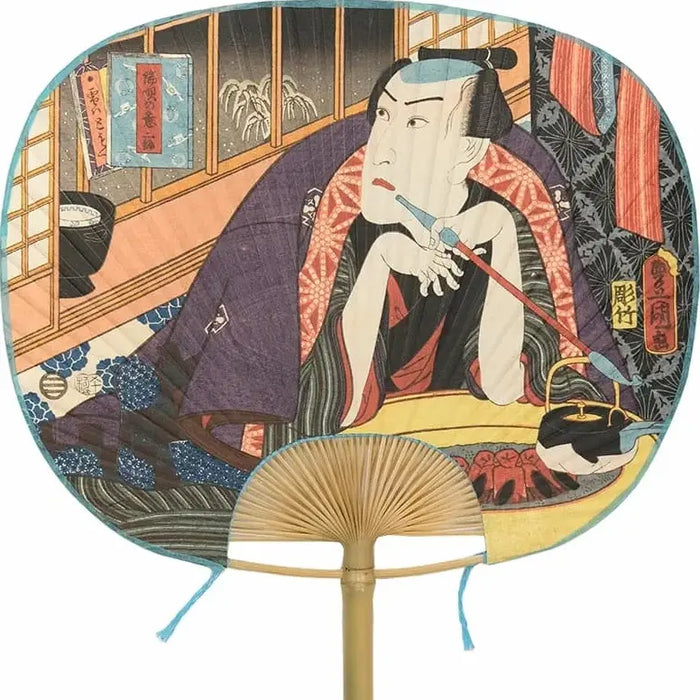
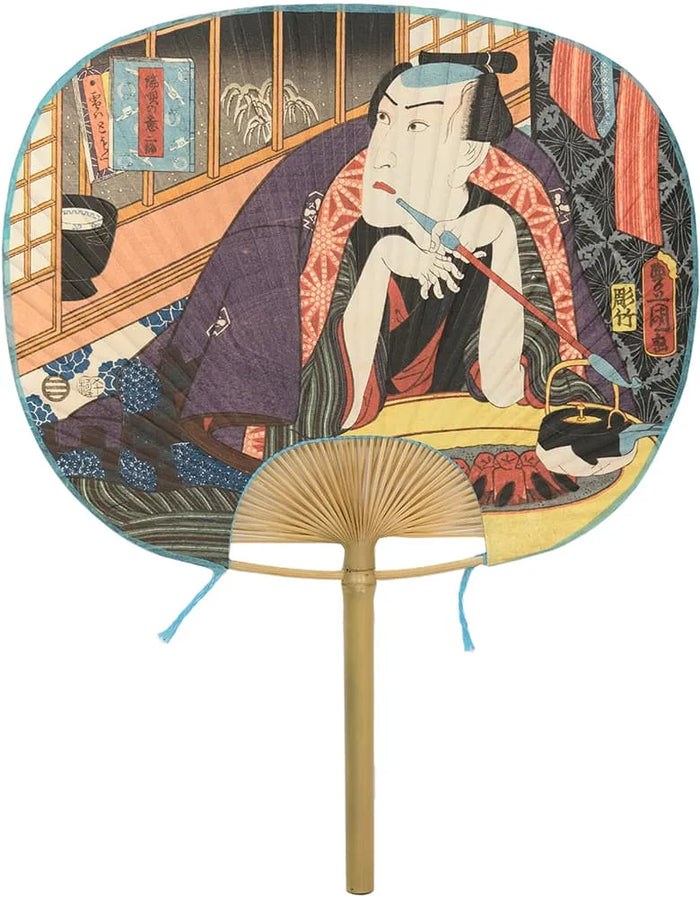
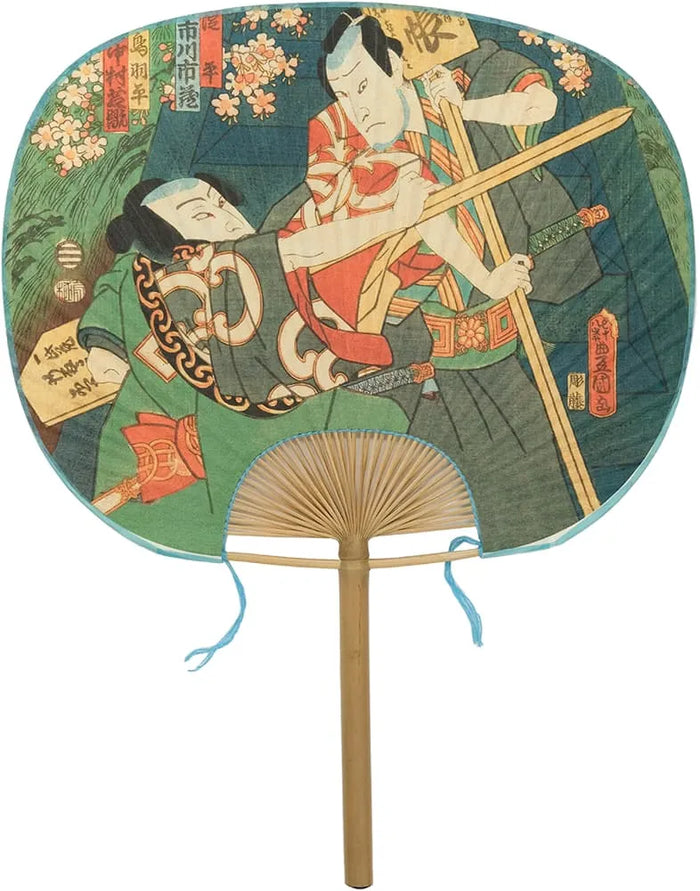
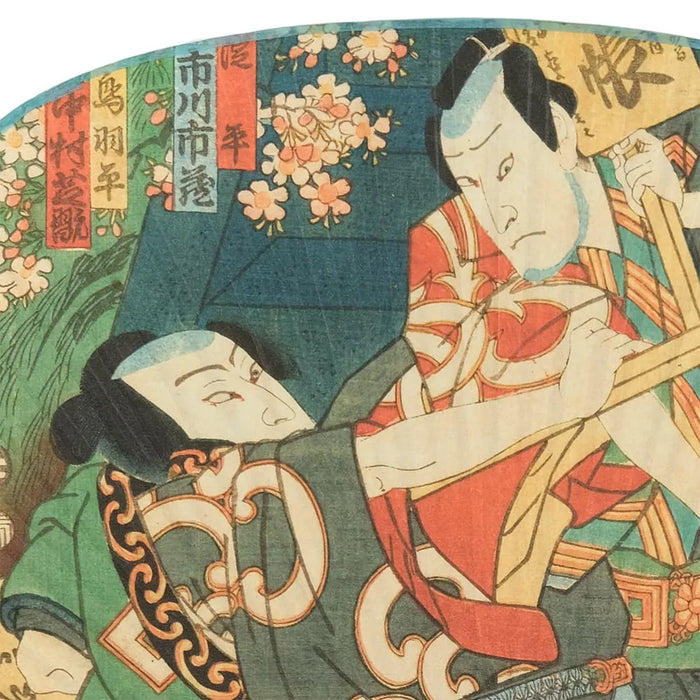
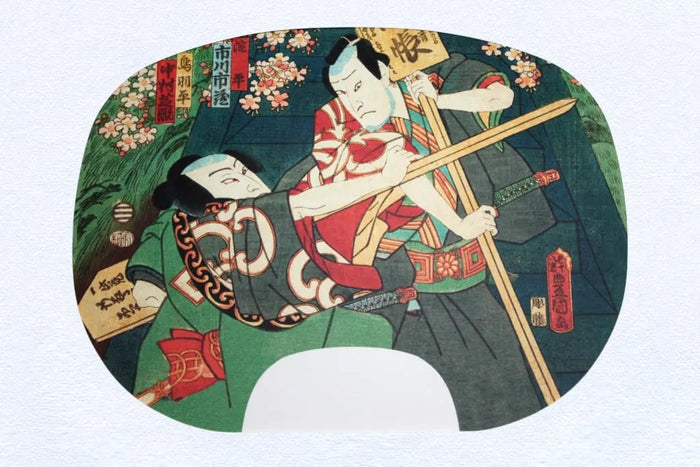
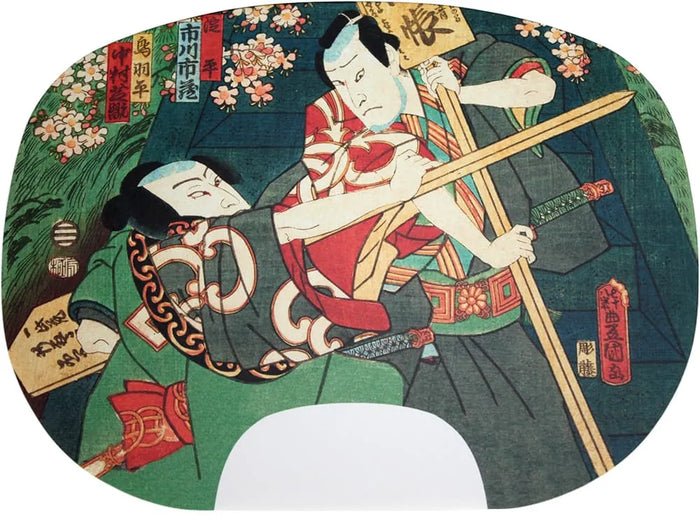
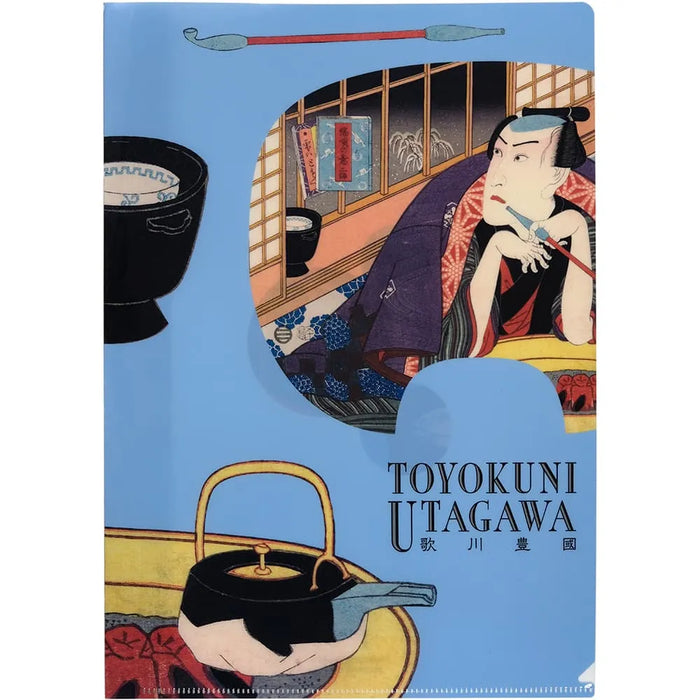
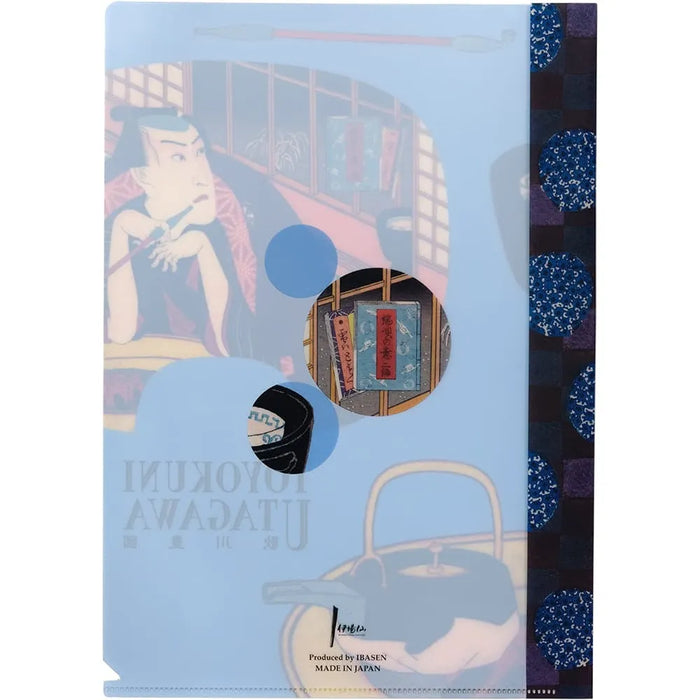
![[Personalisation only]Edo fan No.18 Shading](http://www.ibasen.co.jp/cdn/shop/products/015.webp?v=1679125511&width=700)
![[Personalisation only]Edo fan No.18 Shading](http://www.ibasen.co.jp/cdn/shop/products/015-2.webp?v=1679125511&width=700)
![[Personalisation only]Edo fan No.20 Axe Kotokiku](http://www.ibasen.co.jp/cdn/shop/products/017.webp?v=1679125668&width=700)
![[Personalisation only]Edo fan No.20 Axe Kotokiku](http://www.ibasen.co.jp/cdn/shop/products/017-2.webp?v=1679125668&width=700)
![[Personalisation only]Edo fan No.21 Kamawanu navy blue](http://www.ibasen.co.jp/cdn/shop/products/018.webp?v=1679126034&width=700)
![[Personalisation only]Edo fan No.21 Kamawanu navy blue](http://www.ibasen.co.jp/cdn/shop/products/018-2.webp?v=1679126034&width=700)
![[Personalisation only]Edo fan No.25 Three-masu pattern, double-sided](http://www.ibasen.co.jp/cdn/shop/products/022.webp?v=1679126432&width=700)
![[Personalisation only]Edo fan No.25 Three-masu pattern, double-sided](http://www.ibasen.co.jp/cdn/shop/products/022b.webp?v=1679126433&width=700)
